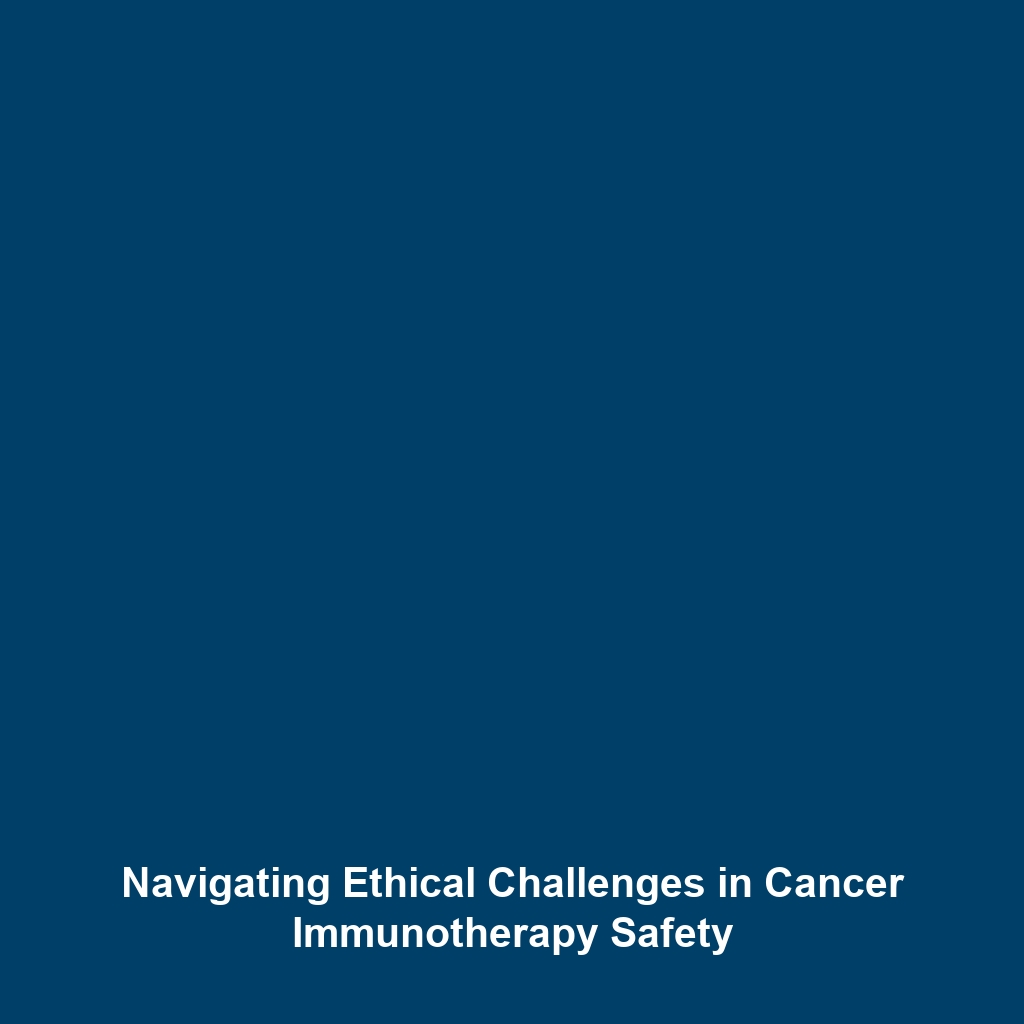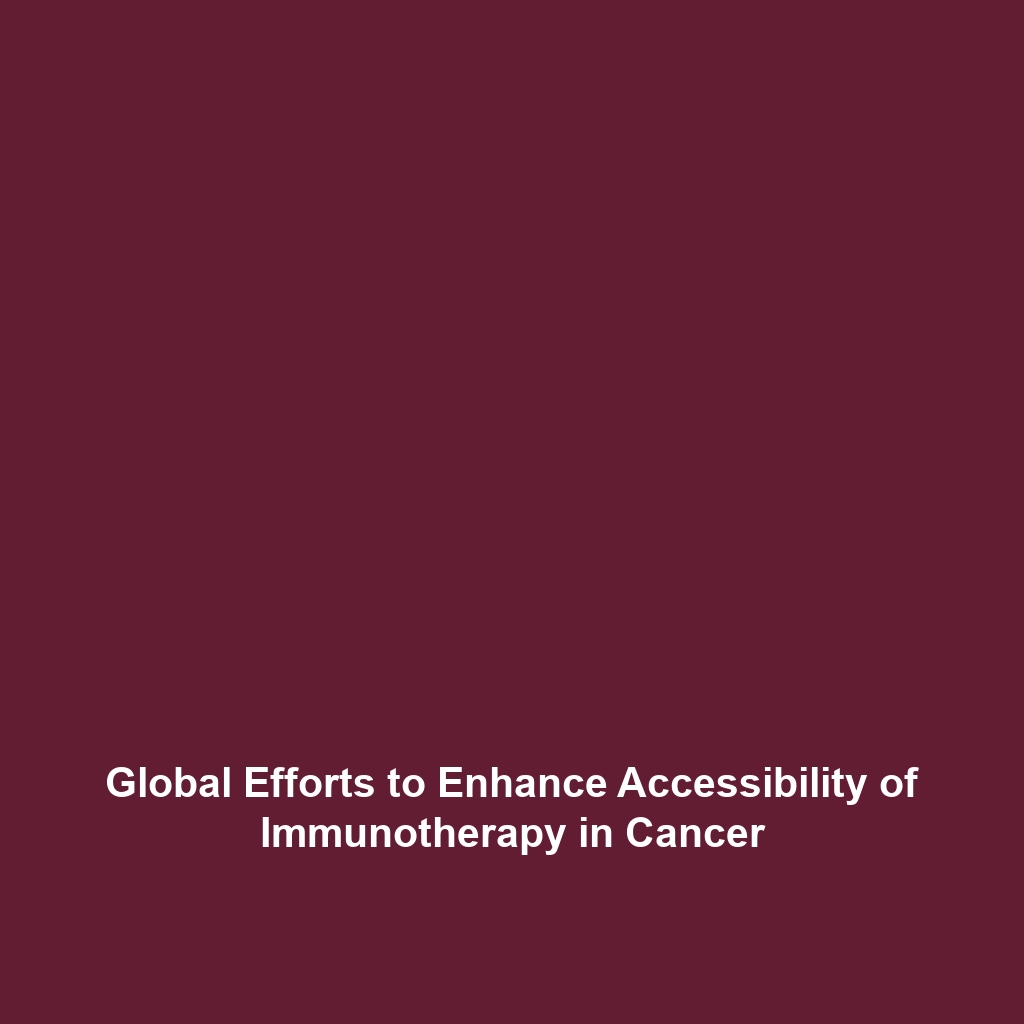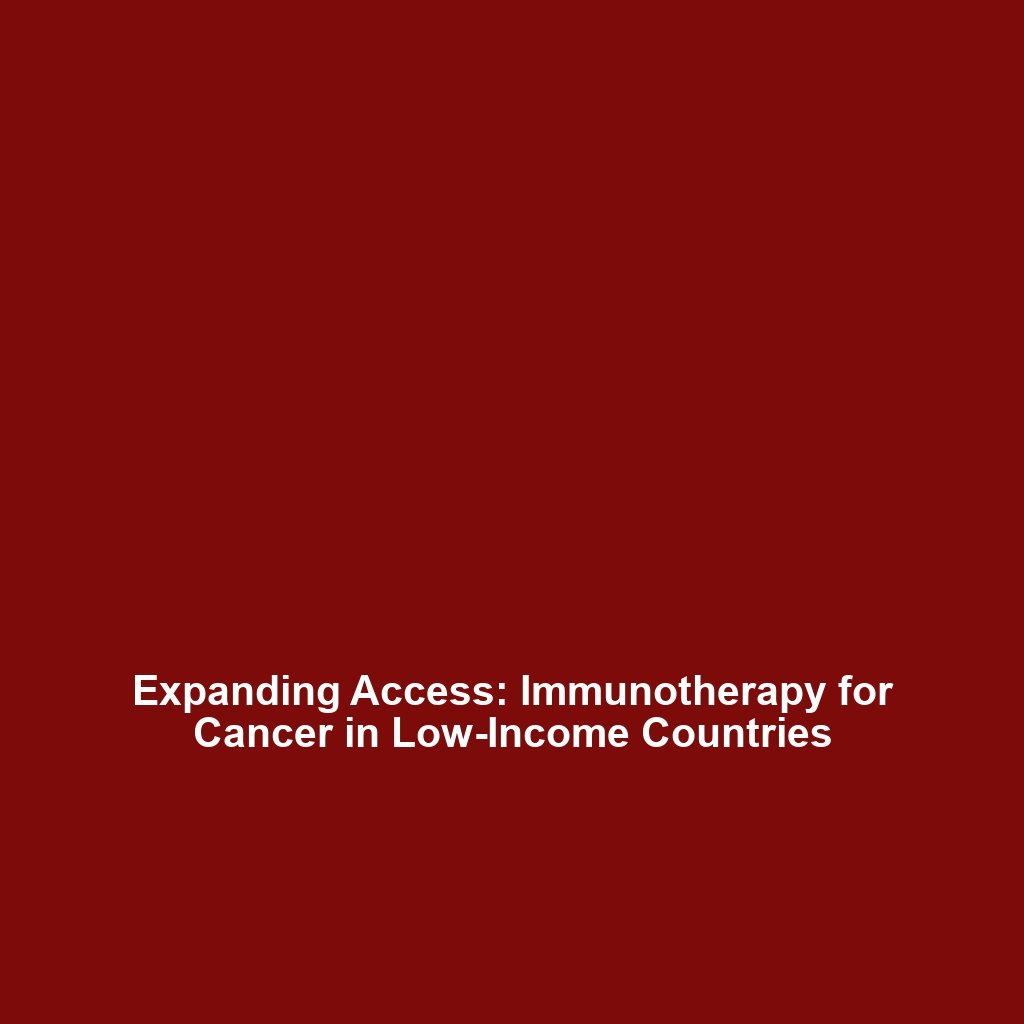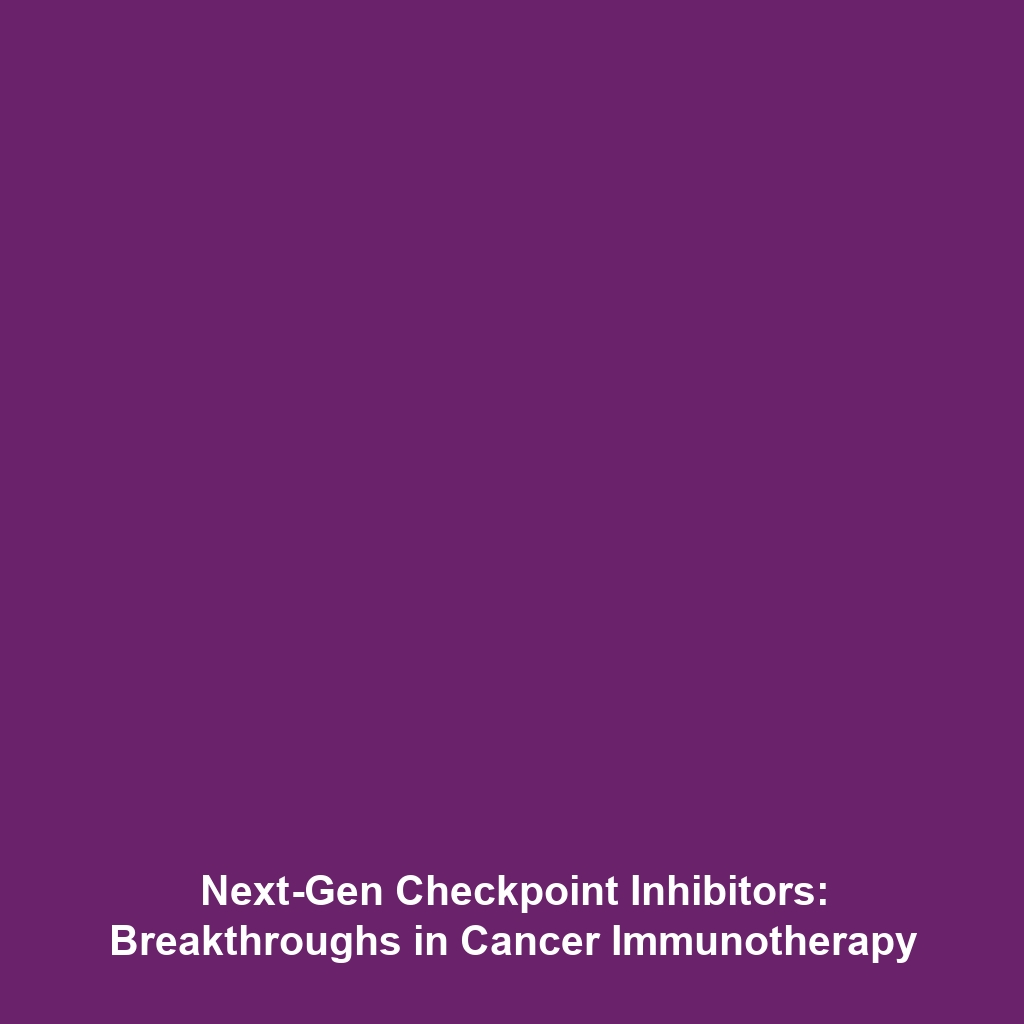EGFR Inhibitors Combined with Checkpoint Inhibitors in Lung Cancer
Introduction
In the ever-evolving field of immunotherapy, one of the most promising strategies involves the combination of epidermal growth factor receptor (EGFR) inhibitors and checkpoint inhibitors for the treatment of lung cancer. This dual approach aims to harness the power of targeted therapy and immunotherapy to improve clinical outcomes for patients suffering from this aggressive disease. Understanding the significance of integrating these therapies provides critical insights into advancements in cancer treatment and the ongoing quest for more effective therapies.
Key Concepts
Understanding EGFR Inhibitors
EGFR inhibitors target specific mutations in the EGFR gene, which are prevalent in non-small cell lung cancer (NSCLC). By blocking the signals that promote tumor cell growth, these inhibitors can lead to remarkable responses in patients harboring these mutations.
Checkpoint Inhibitors and Their Role
Checkpoint inhibitors, on the other hand, are designed to enhance the immune system’s ability to recognize and destroy cancer cells. They work by blocking proteins that prevent T cells from attacking tumors, thereby revitalizing the body’s immune response against cancer.
Combination Therapy in Lung Cancer
The integration of EGFR inhibitors with checkpoint inhibitors represents a new frontier in lung cancer immunotherapy. This combination aims to overcome resistance mechanisms and maximize therapeutic efficacy, presenting significant potential in improving patient survival rates.
Applications and Real-World Uses
The practical applications of combining EGFR inhibitors and checkpoint inhibitors are increasingly being recognized within the realm of immunotherapy & cancer. Some notable examples include:
- Patients with EGFR-mutated NSCLC receiving both therapies showed improved progression-free survival.
- Clinical trials have demonstrated enhanced immune responses in patients treated with the combined approach.
- Real-world data suggests that this combination could offer a new treatment paradigm for relapsed cases.
Current Challenges
Despite promising results, several challenges remain in the application of EGFR inhibitors combined with checkpoint inhibitors in lung cancer:
- Challenges of Resistance: Tumors may develop resistance to one or both therapies over time.
- Issues in Patient Selection: Identifying the right patient population for combination therapy can be complex.
- Adverse Effects: The combination can lead to increased toxicity, necessitating careful management.
Future Research and Innovations
Ongoing research is crucial to further elucidate the benefits of combining EGFR inhibitors with checkpoint inhibitors. Innovations on the horizon include:
- Next-generation sequencing to better characterize the tumor microenvironment.
- Development of biomarker-driven clinical trials to tailor treatments more effectively.
- Investigating new combinations with emerging therapies, potentially improving efficacy.
Conclusion
The combination of EGFR inhibitors and checkpoint inhibitors in lung cancer illustrates a significant stride in the evolution of immunotherapy and its application in oncology. As research continues to unfold, this innovative approach may provide new avenues for effective treatment, improving patient outcomes and survival rates. To learn more about the advances in immunotherapy & cancer, read our article on the latest breakthroughs in cancer treatments.









